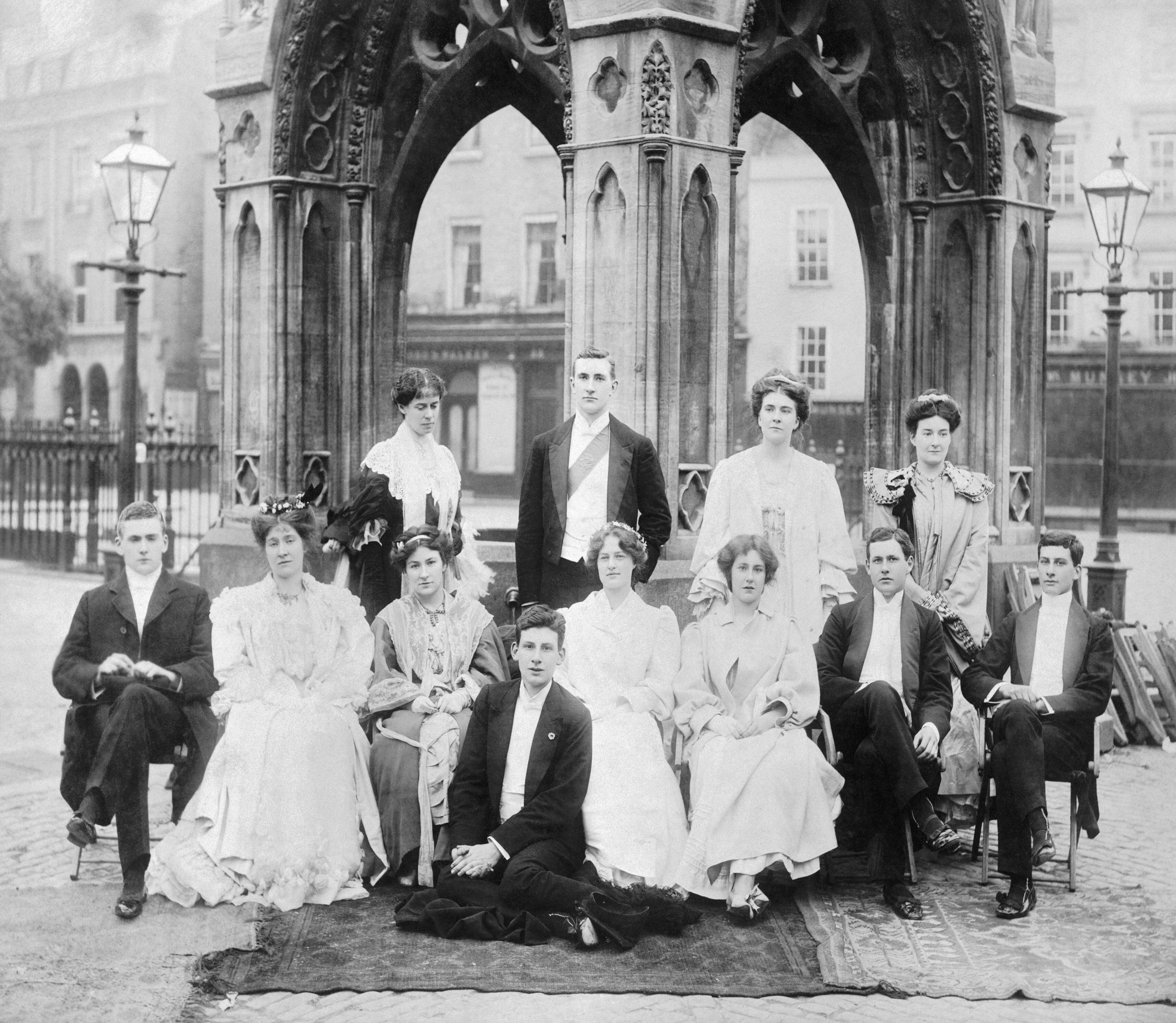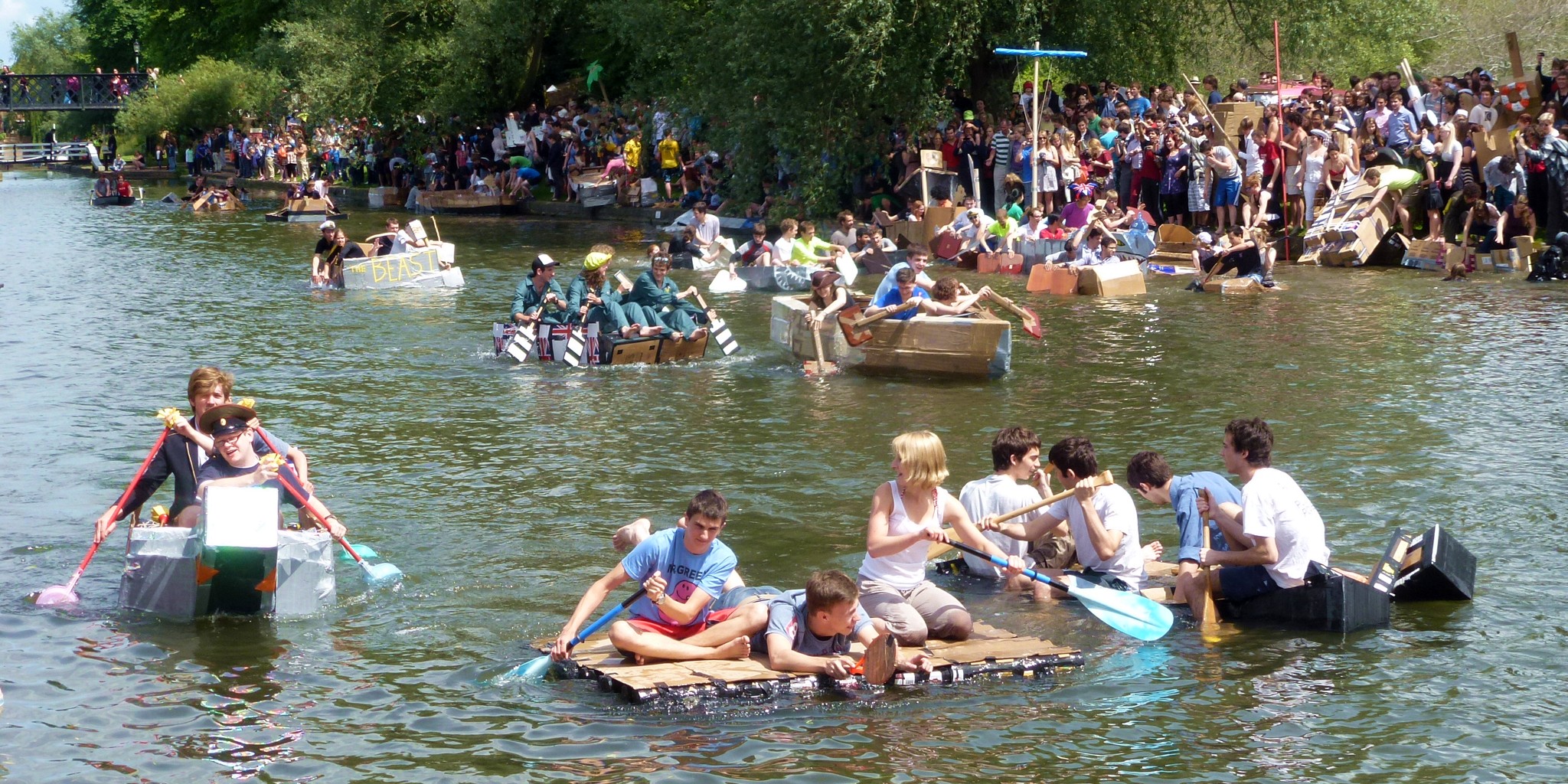|
June Event
June Events are alternatives to May Balls held by some Cambridge colleges. They typically differ by being shorter in duration and being much more affordable, with may balls at Homerton College having twice the budget on average in comparison to their June Events Alternation Some colleges chose to alternate between a May Ball and a June Event each year. Emmanuel College's May Ball is held in May Week every other year, with alternate years featuring an Event on Suicide Sunday May Week is the name used in the University of Cambridge to refer to a period at the end of the academic year. Originally May Week took place in the week during May before year-end exams began. Nowadays, May Week takes place in June after exa .... In 2006, members of the College voted in favour of restoring Pembroke College's lost tradition of hosting a May Ball for 2007. In 2008 they will hold another June Event. References External links Trinity Hall June EventContains the entire may weekWolfs ... [...More Info...] [...Related Items...] OR: [Wikipedia] [Google] [Baidu] |
May Ball
A May Ball is a ball (dance), ball at the end of the academic term, academic year that takes place at any of the colleges of the University of Cambridge. They are elaborate and lavish formal affairs, requiring black tie or sometimes white tie, with ticket prices ranging from around £100 to as much as £640 for a pair of dining tickets at Trinity College, Cambridge, Trinity. May Ball budgets (excluding VAT) can exceed £200,000; a report by the student newspaper Varsity (Cambridge), Varsity in 2016 found that the budget for the 2015 Trinity ball was £286,000. The balls are held in the colleges, starting around from 6-9 p.m. and lasting until well after dawn. "Survivors photographs" are taken of those who last until morning. Other colleges frequently hold winter balls, such as the popular Selwyn Snowball, who recently had acts such Tinchy Stryder and Mumford & Sons, Mumford and Sons headlining. History The tradition of May Balls in Cambridge started in the 1830s with the first ... [...More Info...] [...Related Items...] OR: [Wikipedia] [Google] [Baidu] |
University Of Cambridge
The University of Cambridge is a Public university, public collegiate university, collegiate research university in Cambridge, England. Founded in 1209, the University of Cambridge is the List of oldest universities in continuous operation, world's third-oldest university in continuous operation. The university's founding followed the arrival of scholars who left the University of Oxford for Cambridge after a dispute with local townspeople. The two ancient university, ancient English universities, although sometimes described as rivals, share many common features and are often jointly referred to as Oxbridge. In 1231, 22 years after its founding, the university was recognised with a royal charter, granted by Henry III of England, King Henry III. The University of Cambridge includes colleges of the University of Cambridge, 31 semi-autonomous constituent colleges and List of institutions of the University of Cambridge#Schools, Faculties, and Departments, over 150 academic departm ... [...More Info...] [...Related Items...] OR: [Wikipedia] [Google] [Baidu] |
Emmanuel College, Cambridge
Emmanuel College is a constituent college of the University of Cambridge. The college was founded in 1584 by Sir Walter Mildmay, Chancellor of the Exchequer to Elizabeth I. The site on which the college sits was once a priory for Dominican monks, and the College Hall is built on the foundations of the monastery's nave. Emmanuel is one of the 16 "old colleges", which were founded before the 17th century. Emmanuel today is one of the larger Cambridge colleges; it has around 500 undergraduates, reading almost every subject taught within the University, and around 200 postgraduates. Among Emmanuel's notable alumni are Thomas Young, John Harvard, Graham Chapman and Sebastian Faulks. Three members of Emmanuel College have received Nobel Prizes: Ronald Norrish, George Porter (both Chemistry, 1967) and Frederick Hopkins (Medicine, 1929). In every year from 1998 until 2016, Emmanuel was among the top five colleges in the Tompkins Table, which ranks colleges according to end-of-year ... [...More Info...] [...Related Items...] OR: [Wikipedia] [Google] [Baidu] |
Suicide Sunday
May Week is the name used in the University of Cambridge to refer to a period at the end of the academic year. Originally May Week took place in the week during May before year-end exams began. Nowadays, May Week takes place in June after exams, and is a cause for great celebration amongst the students of the University. Highlights of the week include bumps races, May Balls, June Events and garden party, garden parties. History May Week festivities were originally held in May, in the final week before exams; however, the May boat races, also known as the May Bumps, moving toward June, right after exams to celebrate the year end. Suicide Sunday ''Suicide Sunday'' is the name used at University of Cambridge, Cambridge University to refer to the Sunday immediately after the end of the summer term (known as Easter Term). By this Sunday, all students have finished exams but most of the results have not been published, so it is traditionally a period of nerves and suspense. A stu ... [...More Info...] [...Related Items...] OR: [Wikipedia] [Google] [Baidu] |
Pembroke College, Cambridge
Pembroke College is a constituent college of the University of Cambridge, England. The college is the third-oldest college of the university and has over 700 students and fellows. It is one of the university's larger colleges, with buildings from almost every century since its founding, as well as extensive gardens. Its members are termed "Valencians". The college's current master is Chris Smith, Baron Smith of Finsbury. Pembroke has a level of academic performance among the highest of all the Cambridge colleges; in 2013, 2014, 2016, and 2018 Pembroke was placed second in the Tompkins Table. Pembroke contains the first chapel designed by Sir Christopher Wren and is one of only six Cambridge colleges to have educated a British prime minister, in Pembroke's case William Pitt the Younger. The college library, with a Victorian neo-gothic clock tower, has an original copy of the first encyclopaedia to contain printed diagrams. History Marie de St Pol, Countess of Pembroke (1303� ... [...More Info...] [...Related Items...] OR: [Wikipedia] [Google] [Baidu] |
Terminology Of The University Of Cambridge
Terminology is a group of specialized words and respective meanings in a particular field, and also the study of such terms and their use; the latter meaning is also known as terminology science. A ''term'' is a word, compound word, or multi-word expression that in specific contexts is given specific meanings—these may deviate from the meanings the same words have in other contexts and in everyday language. Terminology is a discipline that studies, among other things, the development of such terms and their interrelationships within a specialized domain. Terminology differs from lexicography, as it involves the study of concepts, conceptual systems and their labels (''terms''), whereas lexicography studies words and their meanings. Terminology is a discipline that systematically studies the "labelling or designating of concepts" particular to one or more subject fields or domains of human activity. It does this through the research and analysis of terms in context for the pur ... [...More Info...] [...Related Items...] OR: [Wikipedia] [Google] [Baidu] |
June
June is the sixth and current month of the year in the Julian and Gregorian calendars—the latter the most widely used calendar in the world. Its length is 30 days. June succeeds May and precedes July. This month marks the start of summer in the Northern Hemisphere and contains the summer solstice, which is the day with the most daylight hours. In the Southern Hemisphere, June is the start of winter and contains the winter solstice, the day with the fewest hours of daylight out of the year. In places north of the Arctic Circle, the June solstice is when the midnight sun occurs, during which the Sun remains visible even at midnight. The Atlantic hurricane season—when tropical or subtropical cyclones are most likely to form in the north Atlantic Ocean—begins on 1 June and lasts until 30 November. Several monsoons and subsequent wet seasons also commence in the Northern Hemisphere during this month. Multiple meteor showers occur annually in June, including the A ... [...More Info...] [...Related Items...] OR: [Wikipedia] [Google] [Baidu] |



